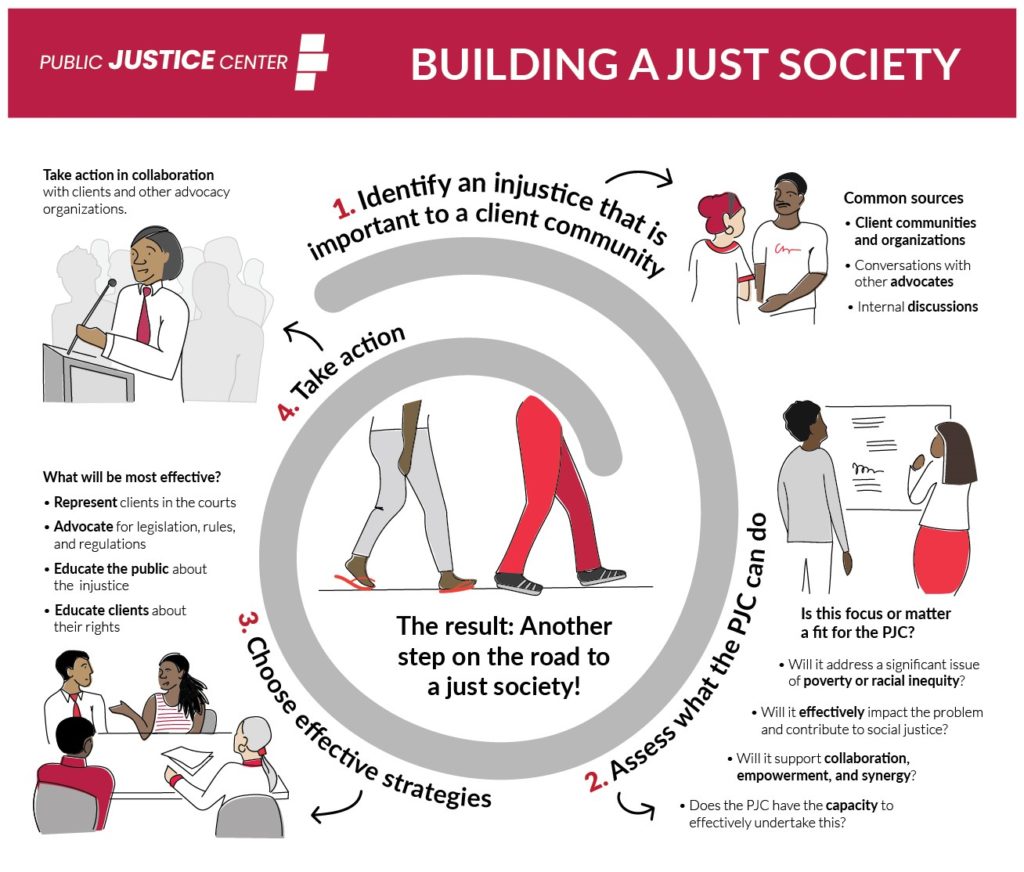The Public Justice Center uses all the tools in the lawyer toolbox to work for economic justice and racial equity. Drawing on insights from clients, community groups, and advocates, we explore the common barriers people face and identify strategies to address them. Here are a few of the ways we stand up for justice.
We advocate:
In the courts
We represent people to enforce their rights, such as preventing eviction or recovering unpaid wages. When we represent many people with the same issue in a class action, we can also pressure the institution we’re suing to change its practices. We also weigh in when cases are on appeal, since appellate decisions can set legal precedent.
Before legislatures and government agencies
We advocate for laws that strengthen the rights of workers, tenants, students, healthcare consumers, and others. These laws may increase funding for things like permanently affordable housing in Baltimore or establish protections for a group of people. We may then use litigation to enforce the rights established by a new law. Government agencies also develop rules and regulations to carry out laws and programs. We advocate to influence how those rules and regulations are implemented.
Alongside community and advocacy organizations
We work in coalition with legal advocates, direct service providers, policy advocates, community organizing groups, and law firms to enforce and expand policies that help ensure people have what they need to thrive. Together, we advocate for laws, file lawsuits, and provide know-your-rights trainings.




